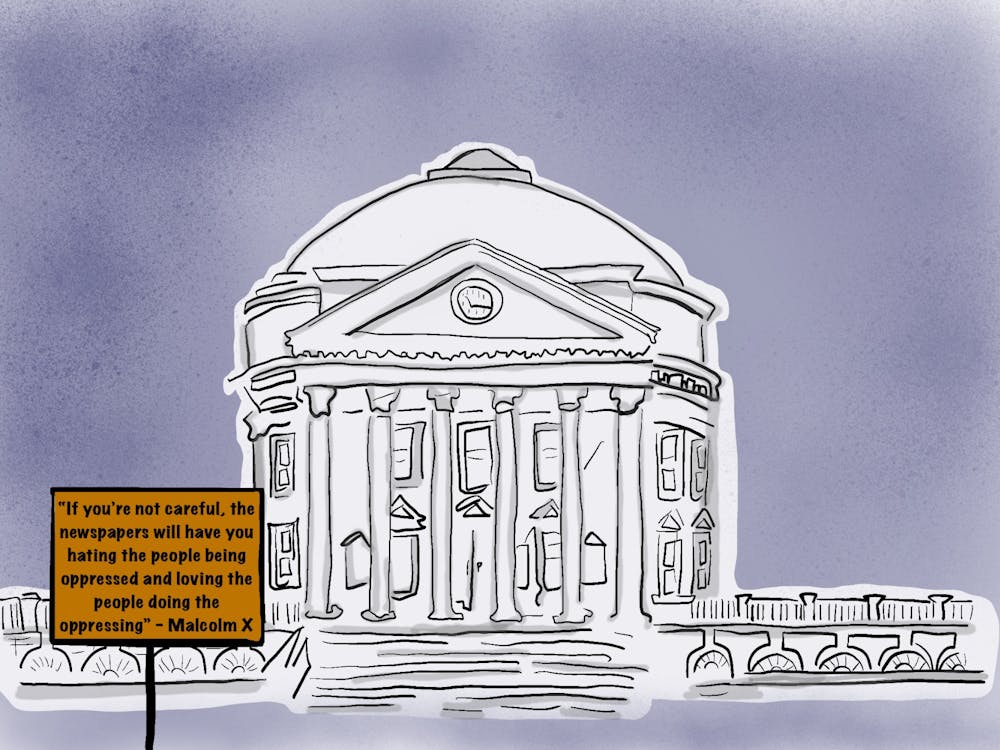While the honor system is a perennial topic of debate and discussion, many students have little to no idea what the University Judiciary Committee is or does. This is not necessarily the students’ fault; students outside the UJC have almost no access to information about the circumstances surrounding each UJC trial or the trial panel’s verdict. I find the blind trust which students place in the UJC alarming and ultimately problematic: A judicial system should be monitored by those who fall under its power, not only by those who work within the system. The UJC should endeavor to become more transparent, so that students outside it may scrutinize and review their own disciplinary system.
For those who need a brief reminder: The UJC is composed of 25 elected representatives and three pools of support officers. A student or CIO accused of violating one of the 12 Standards of Conduct will be tried and, if found guilty, sanctioned by a panel of representatives. The Standards of Conduct apply to all University students, regardless of school or year, and they prohibit behaviors ranging from physical assault to “impeding normal pedestrian or vehicular traffic.” Every University student is affected, either directly or indirectly, by the UJC.
Unless accused students and CIOs opt for an open trial, the details of every case are confidential. This is not a UJC-specific policy: The Family Educational and Privacy Act, or FERPA, prohibits schools from releasing student disciplinary records to protect student privacy. Confidentiality allows for students to avoid embarrassment and other complications that could arise from the publication of sensitive case information. Currently, the UJC releases case data only in the aggregate; reports published on the UJC’s website include broad information about the number of times each standard was violated and a certain sanction was handed down in a given time period. Comparatively, the Honor Committee, which is also limited by FERPA, periodically releases “public summaries,” which include relevant information about the circumstances of each case while also protecting students’ identities. The UJC should follow the model of the Honor Committee and release public summaries that specify which Standards were violated and what sanctions were handed down by the trial panel in each trial. Public summaries would allow students the confidentiality guaranteed to them through FERPA while also providing the student body with specific information about the actions of the UJC.
This suggestion is not novel. In 2004, a student and Tibetan activist named Richard Felker opted for an open UJC trial, an event which drew attention to the UJC and sparked conversations about transparency and accountability. Nick Chapin, a Cavalier Daily columnist, argued if “the UJC removed students' names and identifying information from case files, summaries of each trial could be released, allowing interested community members to scrutinize judicial actions. Such procedure would be permissible under federal law and would guarantee a higher standard of justice at the University.” Twelve years have passed, and the UJC has still not changed its confidentiality policy to become more transparent.
When interviewed, UJC Chair Mitchell Wellman expressed that the creation of public summaries would place a significant logistical burden on the UJC.
“Because we have such a large caseload from year to year, it would require significant amount of time to create summaries in first place, not even considering editing,” he said.
Wellman also noted that no amount of editing could generalize certain cases: “We wouldn’t be able to release a public summary on every case, because some are more high profile, and other students might recognize a student from a certain violation… And because we wouldn’t be able to release information on many of these cases, it would be an incomplete picture of the cases and the nature of instances that come into the UJC.”
The logistical burdens of public summaries are significant but also surmountable. The UJC devotes an entire pool of support officers to education and outreach — surely these educators could be deployed to create the summaries for each case. The UJC could also form a standing committee to review public summaries before publication and ensure the facts have been obscured sufficiently to protect student confidentiality and to comply with FERPA regulations. Wellman may be right in saying limited public summaries will provide an incomplete picture of the UJC’s caseload, but an incomplete picture of UJC cases is not an irrelevant one: some information about the nature of cases can still give students a greater understanding of the operations of their judicial system.
The UJC occupies a privileged place at the University, both in terms of the power it possesses and the freedom with which it operates. No organization with as much responsibility as the UJC has should go as unnoticed as the UJC consistently does. The UJC website states that the system “depends on the awareness and participation of the community it serves.” Releasing public summaries will further the UJC’s goals of student awareness and participation by allowing students to review the UJC and thus take ownership of the judicial system which guides their behavior.
Jordan Arnold is a Viewpoint writer.




